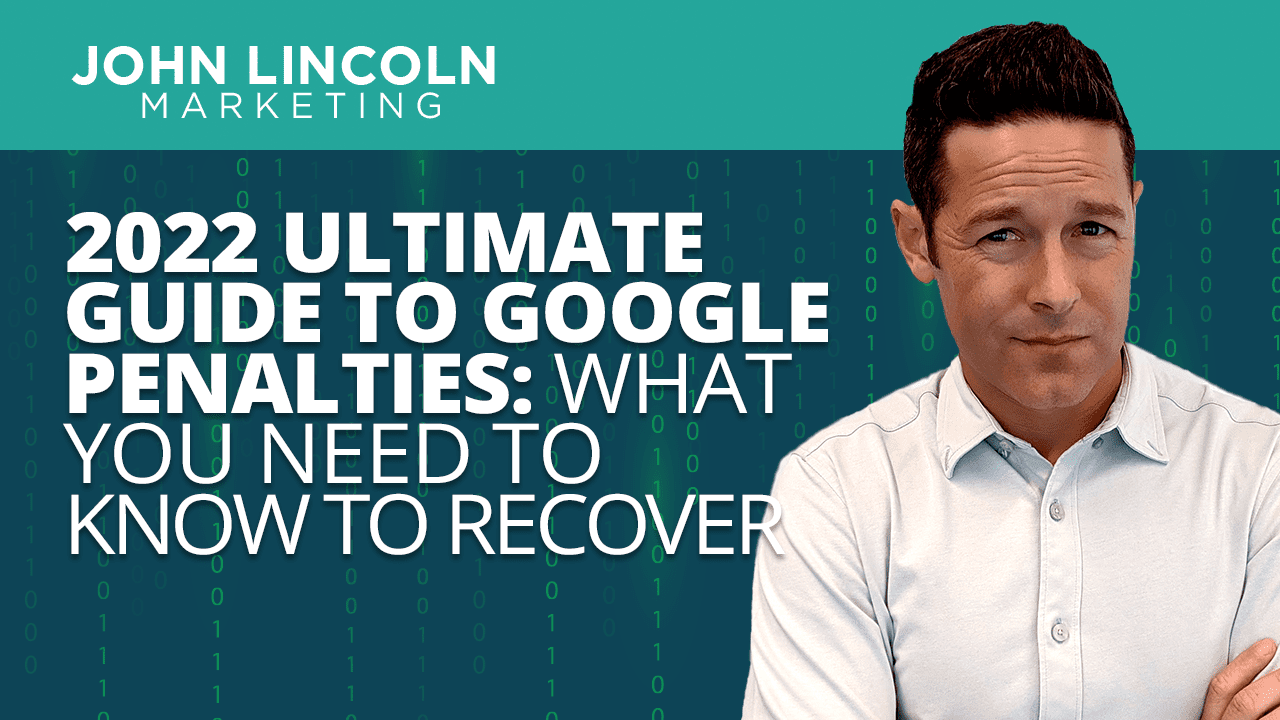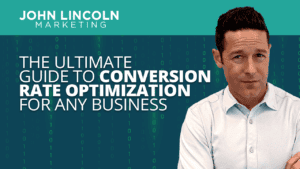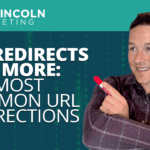
Top 16 Questions to Ask a PPC Company in 2024
In 2024, choosing the right PPC company is not just about spending your advertising budget. You want to make every cent count towards your business

Don’t! Getting hit with a Google penalty isn’t the best thing for your site, but there are things you can do to lessen their blow.
In this guide to Google penalties, I am going to walk you through everything you need to know and how your site can survive them.
A Google penalty happens when the Google algorithm thinks your website has violated Google’s Webmaster Guidelines.
When you receive a Google penalty, your ranking on the search engine results page (SERP) will take a hit. This is bad news for you because the higher your SERP ranking, the more traffic your site will receive.
After all, most people click on one of the first few links when they use Google to search. Your goal is to be one of those first few links. That goal is almost impossible to achieve if you get hit with multiple penalties.
Depending on which rule you violate, your penalty will affect your site in varying levels of severity. Some penalty levels include:
To avoid receiving Google penalties, create an SEO strategy that will grow your site organically. Stay away from black-hat SEO tricks like link-spamming or keyword stuffing.
Now that you know what a Google Penalty is, let’s cover some of the most popular types of penalties.
There are two types of Google penalties:
Manual penalties fit into three different categories: keyword-level, site-wide, and delisting.
When you receive a keyword-level penalty, it means that they have flagged one or more of your keyword choices in your domain. At this level, only the particular keywords in question will be affected. All other keywords will still continue to produce results as expected.
A site-wide penalty is the next level of manual penalties. This happens when a lot of the keywords used for a domain have been flagged. This is more serious than a keyword-level penalty because it means that the domain will lose its ranking for many keywords.
The final, and worst, type of manual penalty is when a site is delisted. In the world of Google Penalties, this is definitely one to be avoided. When your site receives a delisting penalty, it means that your site has violated the terms so severely that Google is removing your domain from its indexing. The site will no longer appear in any SERPs because it is no longer being indexed.
A delisting would completely cut off any organic search traffic your site would receive. All of that SEO work you’ve done would be for nothing. Your site would still be accessible if people typed in the URL directly but not accessible if anyone used Google to search for it.
Algorithmic penalties occur when one of Google’s algorithms, Penguin or Panda, identifies your content as something that violates the Webmaster Guidelines.
In this situation, one of two things will happen. Either your violating content will be referred for a manual penalty or temporary limitations will be placed on your site as a response to your unbecoming conduct.
Google’s algorithms aren’t there to punish you. In fact, they are in place to uphold internet quality. They reward the websites that clearly follow the rules and meet their high standards. These sites are indexed and presented in the most logical way.
The biggest sign of a Google penalty is if you notice a significant decrease in organic traffic or SERP ranking. If this is the case, you’ve been hit with a Google penalty.
You can also view your manual penalties under the Security and Manual Actions tab in your Google Search Console. In that tab, you’ll also be able to submit a request for Google to review this decision if you think there’s been a mistake.
Algorithmic penalties are harder to diagnose because you won’t receive any notification from Google that you’ve received one.
Because of their lack of notice, it is important to stay on top of your SERP ranking. If you start to see it decreasing significantly, there’s a good chance that you’ve offended the algorithm.
If you think you’ve been hit with an algorithmic penalty, check out other websites in your industry. If they are also losing rank, there’s a good chance that an algorithm update has flagged a popular keyword in your field. There could also be a problem with your technical SEO.
Keep in mind that the algorithms are not only designed to demote spammy sites. They also work to promote better-quality content. So after an algorithm update, it is possible that you fall in the rankings simply because their content is better. You didn’t do anything wrong, exactly, but there are ways that you could improve your content and, in turn, boost your ranking.
Avoiding Google penalties is much easier than recovering from them. To avoid them, you need to know what actions you’re taking will raise a red flag and put you on Google’s radar.
The list of manual actions includes:
The majority of manual penalties, or manual actions, are caused by unnatural links and content that provides little to no value to the reader.
The truth is, if you are hit with a manual action for unnatural links, you are already aware that you’ve been doing some black-hat SEO work. Things like buying links or websites will land you in trouble because it’s spammy. You aren’t putting in the work to grow organically and Google knows it.
Here are some tips on how to avoid a Google penalty:
Where are your backlinks coming from? Did you participate in a link scheme?
Download your link data from all available sources, including Google Search Console and programs like Moz or SEMRush.
Look at your backlink acquisition rate compared to that of your competition. Does it seem to be increasing rapidly? Are there big spikes in your data? This is a sign of a negative SEO attack. It also happens when you participate in a link scheme.
You want to avoid links that are not URL or brand-anchored. Anchor texts created through negative link building are usually easy to identify because they are keyword-stuffed and spammy.
Things like “quality cheap backlinks” or “buy backlinks cheap” are obvious signs— both to you and Google’s algorithm.
An easy way to check for spammy backlinks that could give you a Google penalty is by checking the referring domain.
Look for domains that look as if they are built specifically for selling links. They will get little to no traffic from Google but have a high Domain Rating.
Google also keeps track of the publishers, bloggers, and websites that are clearly spam domains. If any of these domains link to your site, the algorithm will flag you.
Recovering from a Google penalty can be difficult but it’s not impossible.
If you think you’ve received your penalty in error, or if you’ve taken the steps to correct it, you can request that Google go back and review your penalty by clicking the “Request Review” button on your Google Search Console.
You can either remove the offending links or, if removing them is not an option, you can disavow them. Google really prefers that you remove the ones that you can, though. So do this before turning to the disavow tool.
To remove the spammy links, you can reach out to the webmaster of the offending website and ask them to remove them. Sometimes, they will but usually, it will be harder than that.
Most of these webmasters will simply ignore your request. The most troubling ones will ask you to pay them to remove it.
Make sure you document every step you take to try to remove these links. This will show Google that you put in a good faith effort to remove the spammy links and put more stock in your reconsideration request.
If you are unsuccessful in getting the link removed, you can then use the disavow tool within the Google Search Console.
If you receive a penalty because of content, improve your content. Uplevel your copy and add more information that is actually useful to your readers. In your reconsideration request, you’ll need to document what you removed and what you added to show Google that you are worthy of being reconsidered.
If your reconsideration request is denied, do so more cleanup on your site and submit it again. There is no limit on how many times you can submit a request.
Reconsideration requests only work for manual actions though. Algorithmic penalties cannot be reconsidered. The only way to break free from this type of Google penalty is to fix the issues, remove the offending keywords, and wait for Google to recrawl and reindex your site.
So long story short: Google penalties don’t equal the death of your site.
While they are damaging to your site, there are steps you can take to recover from them.
This takes time and effort that is really unnecessary though. Your best bet is to avoid them altogether.
Keep producing quality content and growing your site’s traffic organically. If you don’t do spammy stuff, Google won’t treat you as the spammy site you are.
Welcome to John Lincoln’s personal website. You can learn about John Lincoln’s books, films, book him to speak and contact him. John is directly associated with many of the businesses mentioned on this website and freely discloses this information.

John Lincoln is CEO of Ignite Visibility, one of the top digital marketing agencies in the nation. Ignite Visibility is a 6x Inc. 5,000 company. Ignite Visibility offers a unique digital marketing program tied directly to ROI with a focus on using SEO, social media, paid media, CRO, email and PR to achieve results. Outside of Ignite Visibility, Lincoln is a frequent speaker and author of the books Advolution, Digital Influencer and The Forecaster Method. Lincoln is consistently named one of the top digital marketers in the industry and was the recipient of the coveted Search Engine Land “Search Marketer of The Year” award. Lincoln has taught digital marketing and Web Analytics at the University of California San Diego since 2010, has been named as one of San Diego’s most admired CEO’s and a top business leader under 40. Lincoln has also made “SEO: The Movie” and “Social Media Marketing: The Movie.” His business mission is to help others through digital marketing.
Want to get in touch with John Lincoln? Click Here To Reach Out.

In 2024, choosing the right PPC company is not just about spending your advertising budget. You want to make every cent count towards your business

Whether you’re a seasoned marketer or just starting out, conversion rate optimization (CRO) is a powerful tool that can boost your sales, leads, and overall

Feeling overwhelmed by the sea of SEO companies out there? You’re not alone! Choosing the right partner is crucial for achieving your online marketing
 301 Redirects and More: The Most Common URL Redirections
301 Redirects and More: The Most Common URL Redirections Whether you’re new to the SEO game or you’ve been playing for awhile, you need to get familiar with URL